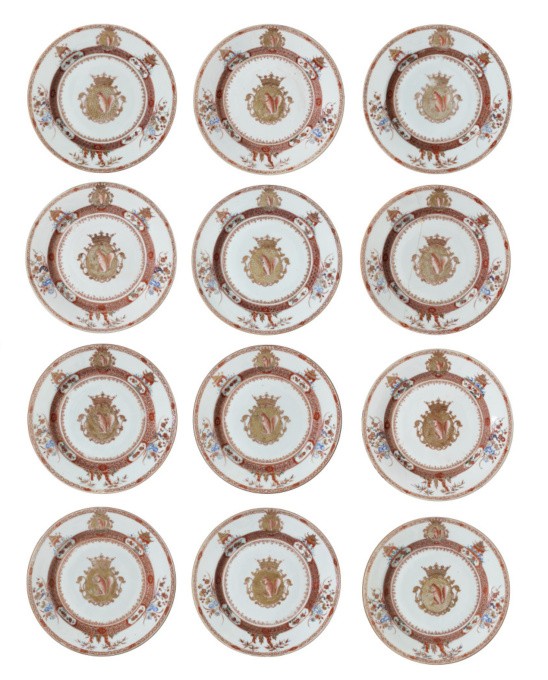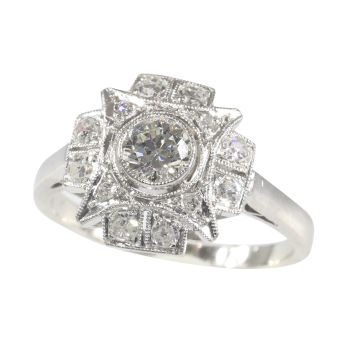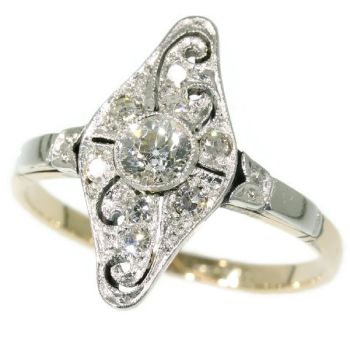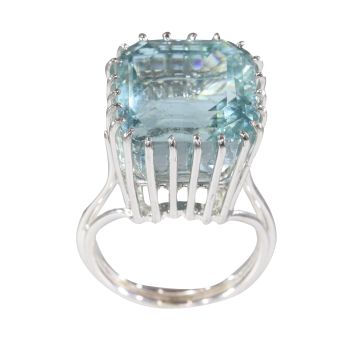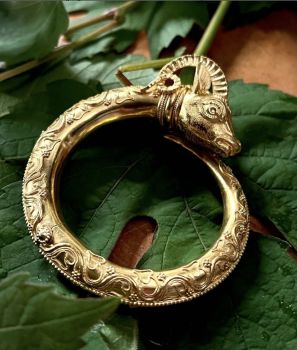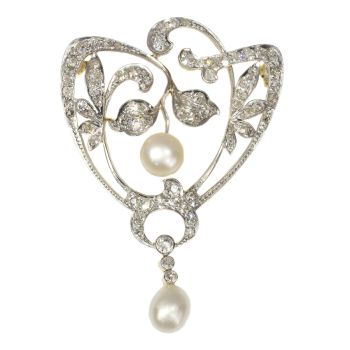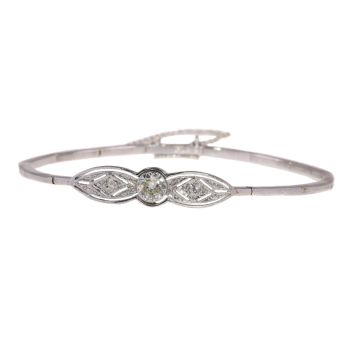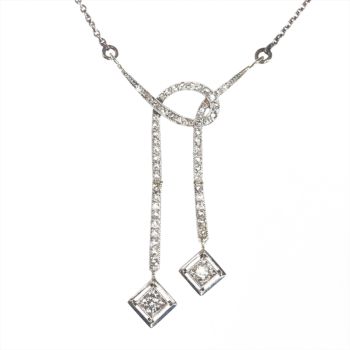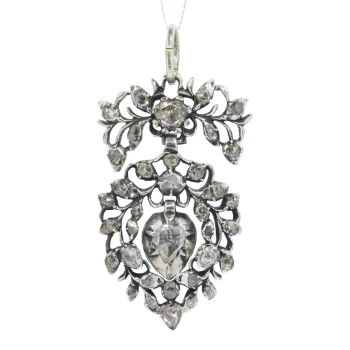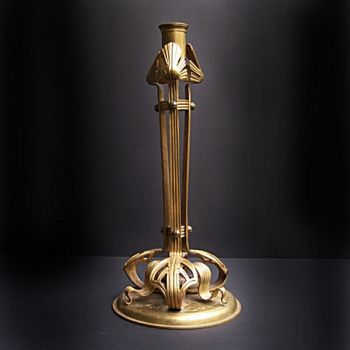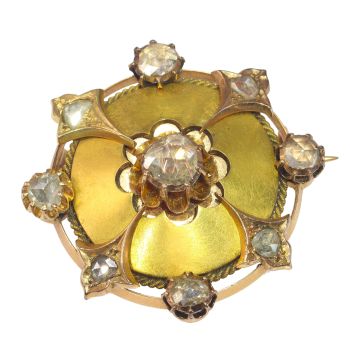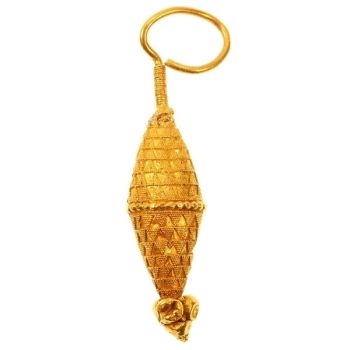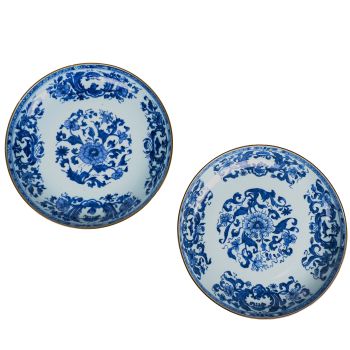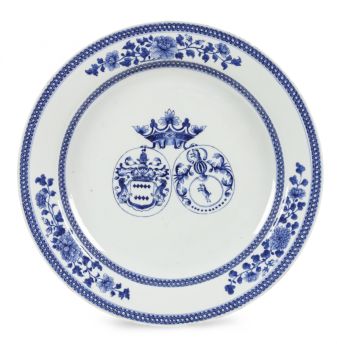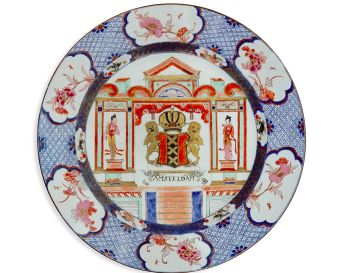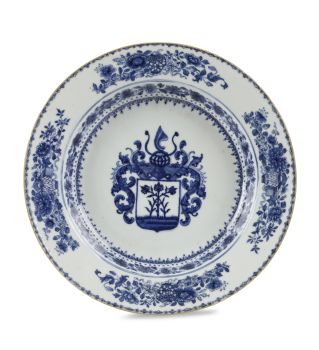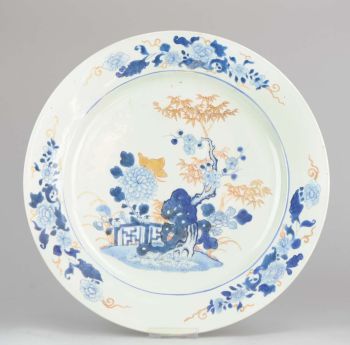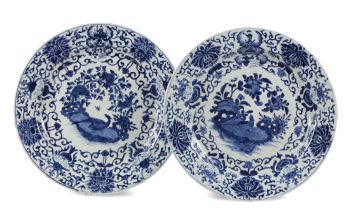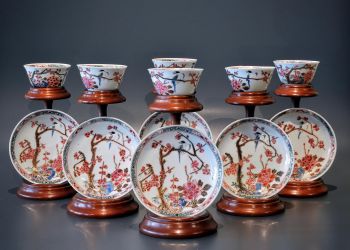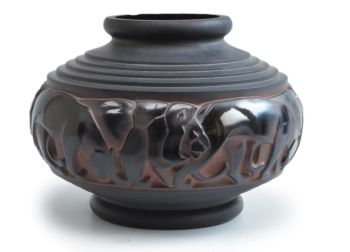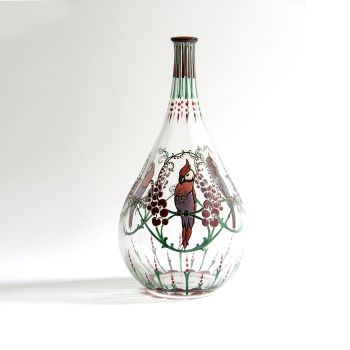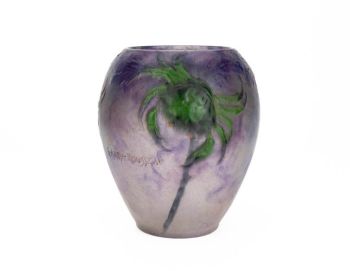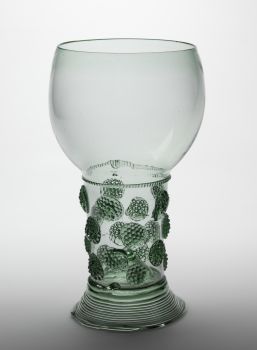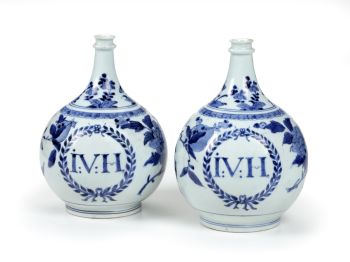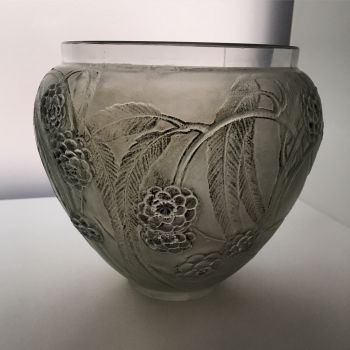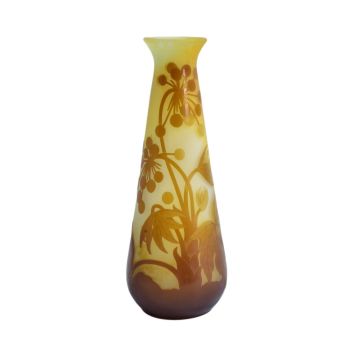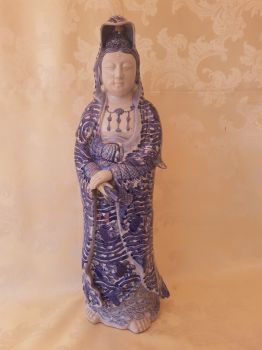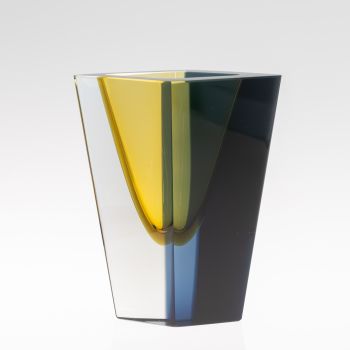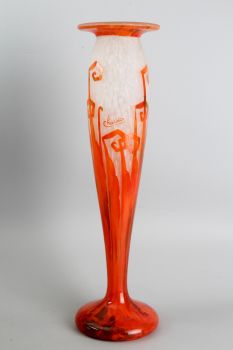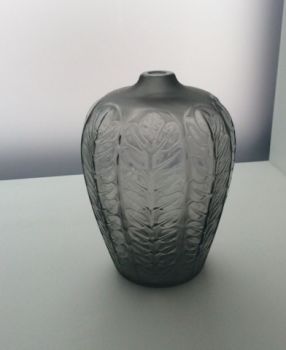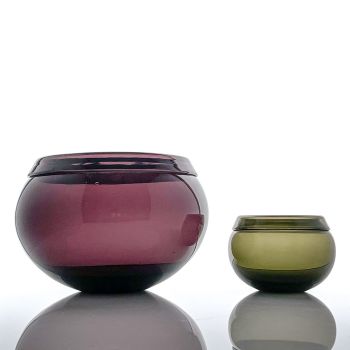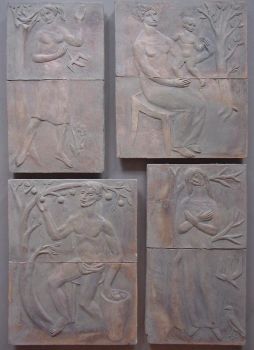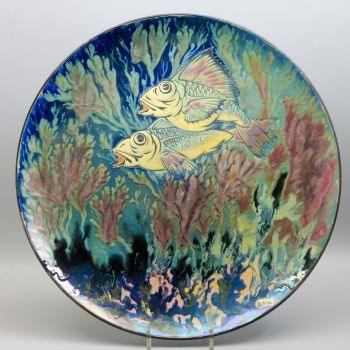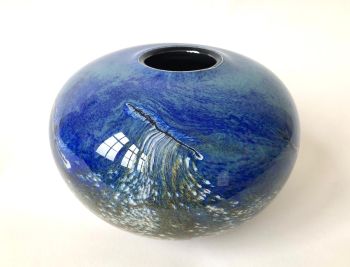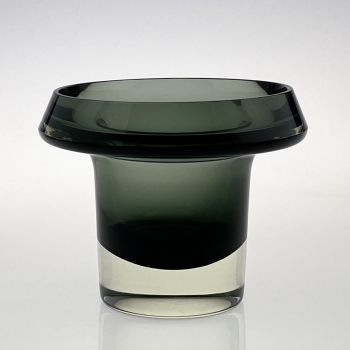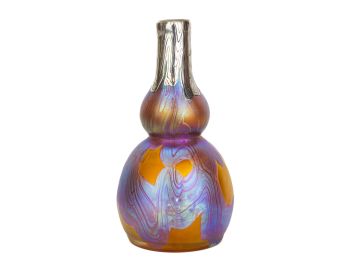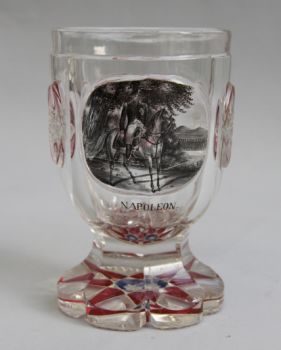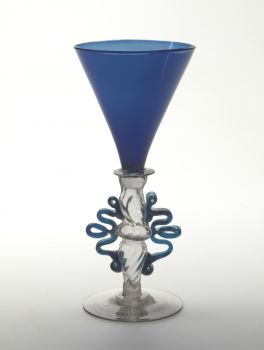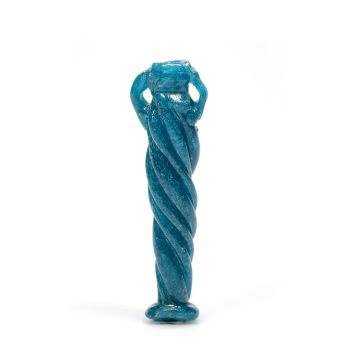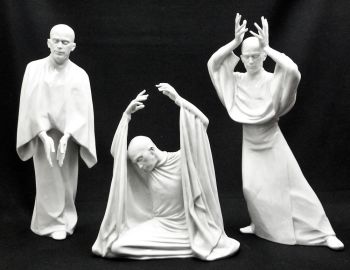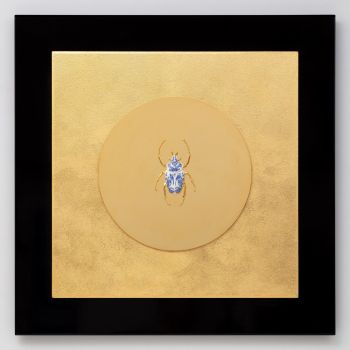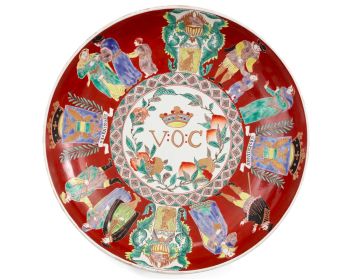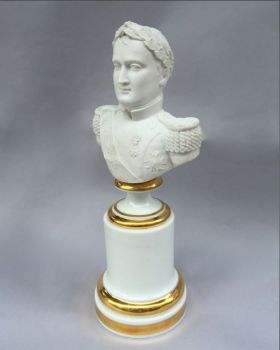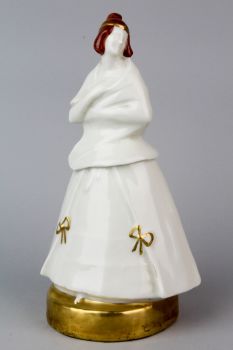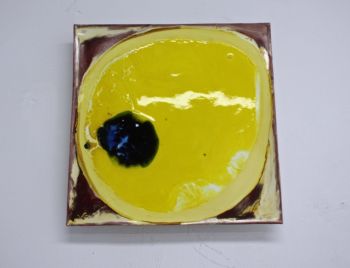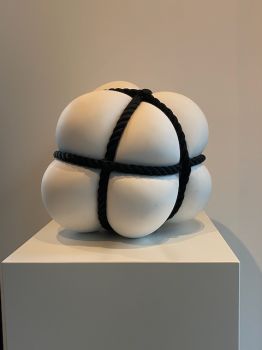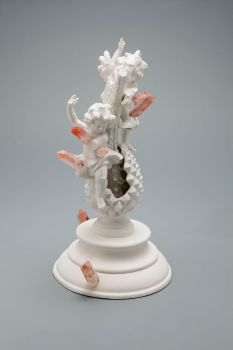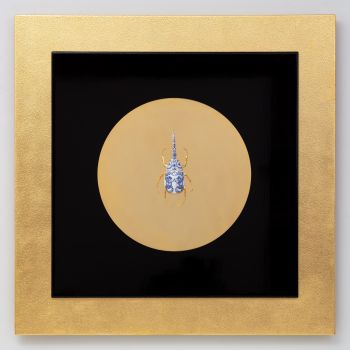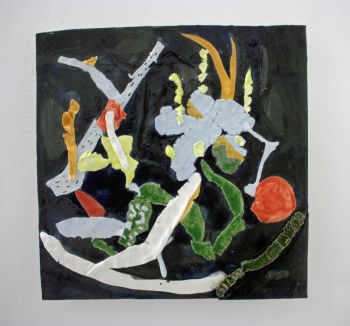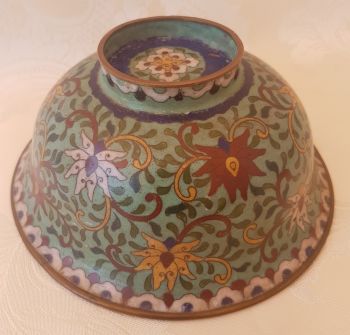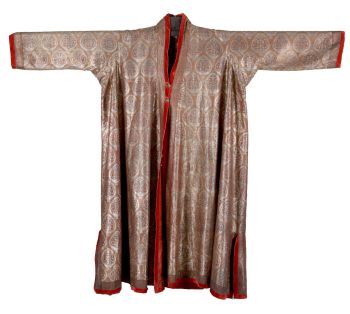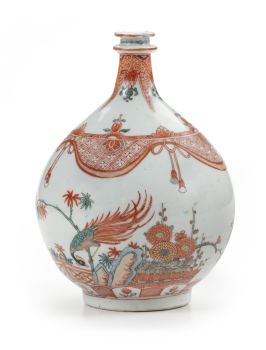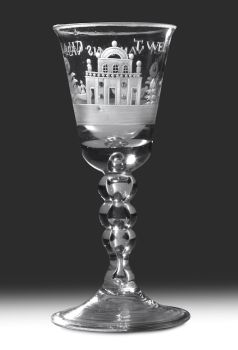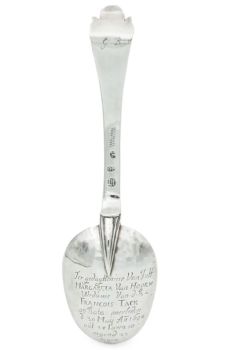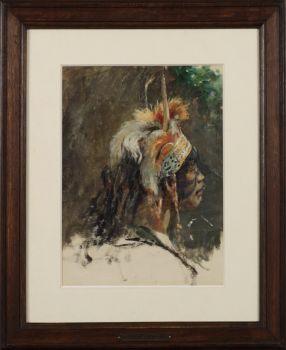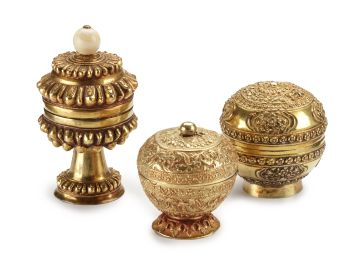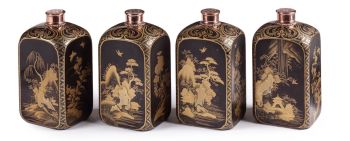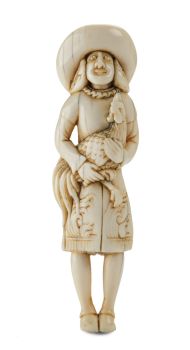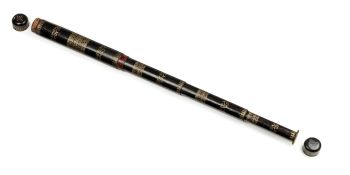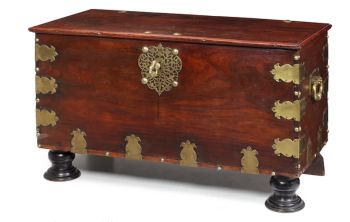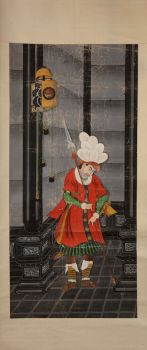A rare set of twelve Chinese export porcelain plates bearing the arms of Jan Albert Sichterman (1692 1730 - 1764
Artiste Inconnu
Porcelaine
ø 23 cm
Prix sur demande
Zebregs & Röell - Fine Art - Antiques
- Sur l'oeuvre d'artA rare set of twelve Chinese export porcelain plates bearing the arms of Jan Albert Sichterman (1692-1764)
Qianlong period, circa 1730-1735
Each decorated in iron red, gold, brown, green, purple and blue, with in the center and upper rim, the Sichterman coat-of-arms of a red squirrel on a gold ground, nibbling at a green leaf, on an oval shield with a coronet on top.
Diam. 23 cm (each)
Jan Albert Sichterman (Groningen 1692 - 1764) commissioned this, and seven other dinner services, coffee and tea services and numerous other pieces of Chinese porcelain with his coat-of-arms. At 24, after a duel in which he wounded his opponent, Jan Albert had to flee the Netherlands. In 1716 he arrived in Batavia (Jakarta), and a year later, he was sent to Hooghly, the Dutch factory in Bengal. Here he made a splendid career, perhaps because in 1721 he married Sibylla Volkera Sadelijn (1699-1781), daughter of Jacob Sadelijn, Director of Bengal from 1727 till 1734. Jan Albert succeeded his father-in-law as Director of Bengal in 1734 till 1744, when he returned to Holland as commander and admiral of the return fleet, taking a large part of his armorial porcelain collection with him. Many pieces had already been sent to the Netherlands in advance.
In Bengal, Jan Albert was active in the cotton and silk trade for the VOC and also in very lucrative private trade and smuggling, which made him a fortune. After his death in 1764, his huge collection of porcelain, Japanese lacquer, exotica, oriental furniture, and numismatics, books, and 481 Dutch master paintings, including Rembrandt, Frans Hals, Jan Steen, Rubens and many other masters. The sale included about 750 lots of porcelain, in total over 4000 pieces, while he had given his three surviving children already a fair share of his porcelain collection. It is no wonder that Sichterman, who could design his own coat-of-arms as a nouveau riche, chose the ever-acorn-collecting squirrel to adorn his shield. - Sur l'artiste
Il peut arriver qu'un artiste ou un créateur soit inconnu.
Certaines œuvres ne doivent pas être déterminées par qui elles sont faites ou elles sont faites par (un groupe d') artisans. Les exemples sont des statues de l'Antiquité, des meubles, des miroirs ou des signatures qui ne sont pas claires ou lisibles, mais aussi certaines œuvres ne sont pas signées du tout.
Vous pouvez également trouver la description suivante :
•"Attribué à …." A leur avis probablement une oeuvre de l'artiste, au moins en partie
•« Atelier de …. ou « Atelier de » À leur avis, une œuvre exécutée dans l'atelier ou l'atelier de l'artiste, éventuellement sous sa direction
•« Cercle de… ». A leur avis une oeuvre de la période de l'artiste témoignant de son influence, étroitement associée à l'artiste mais pas forcément son élève
•« Style de … ». ou "Suiveur de ...." Selon eux, une œuvre exécutée dans le style de l'artiste mais pas nécessairement par un élève ; peut être contemporain ou presque contemporain
•« Manière de… ». A leur avis une oeuvre dans le style de l'artiste mais d'une date plus tardive
•"Après …." A leur avis une copie (quelle qu'en soit la date) d'une oeuvre de l'artiste
•« Signé… », « Daté… ». ou « Inscrit » À leur avis, l'œuvre a été signée/datée/inscrite par l'artiste. L'ajout d'un point d'interrogation indique un élément de doute
• "Avec signature ….", "Avec date ….", "Avec inscription …." ou "Porte signature/date/inscription" à leur avis la signature/date/inscription a été ajoutée par quelqu'un d'autre que l'artiste
Êtes-vous intéressé par l'achat de cette oeuvre?
Artwork details
Related artworks
- 1 - 4 / 12
Artiste Inconnu
Series of 6 Chinese cups and saucers (Yongzheng period)1722 - 1735
Prix sur demandeKuipers Kunst & Antiek
1 - 4 / 14Gabriel Argy-Rousseau
Gabriël Argy-Rousseau – Crabes et Algues vase – 19201920 - 1929
Prix sur demandeAntiques Emporium
Johann Loetz (Lötz) Witwe Klostermühle
Johann Loetz Witwe - Phänomen Genre 7773 – Orange1900 - 1910
Prix sur demandeAntiques Emporium
1 - 4 / 24Artiste Inconnu
A large Japanese Imari porcelain 'VOC Groningen' dish1800 - 1925
Prix sur demandeZebregs & Röell - Fine Art - Antiques
Samuel Dejong
Anatomia Blue Heritage, Atlas Closed2017 - 2019
Prix sur demandeVilla del Arte Galleries
1 - 4 / 24Artiste Inconnu
A silver spoon commemorating Juff’ Margareta van Hoorn1656 - 1694
Prix sur demandeZebregs & Röell - Fine Art - Antiques
Artiste Inconnu
UN FILET D'IVOIRE D'UN DUTCHMAN TENANT UN COCKEREL18th century
Prix sur demandeZebregs & Röell - Fine Art - Antiques
Artiste Inconnu
UN RARE GRAND TÉLESCOPE EN CUIR LAQUÉ JAPONAIS1750 - 1800
Prix sur demandeZebregs & Röell - Fine Art - Antiques
Shiba Kokan
Peinture d'un hollandais fantastiqueearly 19th
Prix sur demandeZebregs & Röell - Fine Art - Antiques
1 - 4 / 12

